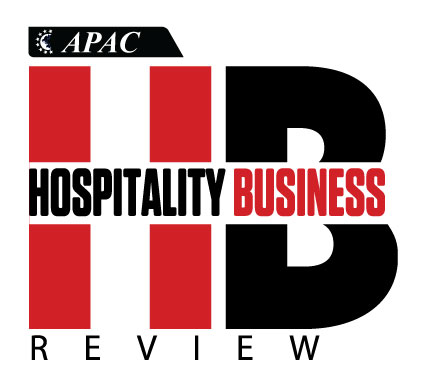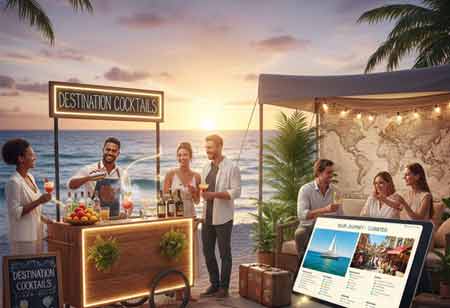Thank you for Subscribing to Hospitality Business Review Weekly Brief
Collaboration and Partnership in Hospitality Marketing
Marketing in the hospitality industry relies on strategic collaborations to enhance visibility and engagement. Integrating technology, leveraging data insights, and fostering local community ties strengthen these efforts, creating a cohesive and impactful brand presence.

By
Hospitality Business Review | Monday, July 14, 2025
Stay ahead of the industry with exclusive feature stories on the top companies, expert insights and the latest news delivered straight to your inbox. Subscribe today.
FREMONT, CA: In the hospitality industry, businesses are embracing innovative marketing strategies to capture the attention of their target audiences and enhance guest experiences. By forming strategic partnerships, utilising data insights, and integrating technology, hospitality brands can create engaging campaigns that attract customers, build loyalty, and drive business growth.
Joint Promotions in hospitality marketing involve businesses collaborating to offer combined deals or packages. This strategy attracts a broader audience by providing a comprehensive travel experience that leverages the strengths of each partner, creating added value for customers. Joint promotions enhance visibility and drive bookings by presenting a more appealing and convenient option, reaching potential customers interested in both services.
Cross-promotion is a tactic in hospitality marketing where businesses promote each other's services to their respective customer bases. This mutual endorsement helps both businesses reach new audiences interested in their services. Cross-promotion strengthens partnerships and can drive traffic to both establishments. Leveraging existing customer relationships to introduce complementary offerings enhances marketing effectiveness.
Co-branding in hospitality marketing involves collaborating between two or more brands to create a unique, joint product or service offering. This strategy allows brands to combine their resources and brand equity, creating a distinctive that exudes exclusivity and prestige. Co-branding helps attract new customer segments and adds a touch of luxury to hospitality offerings. It generates buzz and interest by leveraging the reputations and strengths of each partner, often leading to increased brand visibility and enhanced market position.
Influencer Partnerships leverage social media influencers or content creators to promote products or services in the hospitality sector. Influencers showcase experiences at hotels, restaurants, or attractions to their followers, leveraging their credibility and reach. This type of marketing helps reach targeted audiences through trusted voices. Influencers drive engagement and interest by sharing authentic experiences and recommendations, amplifying brand messages and increasing visibility in niche markets.
Local Community Engagement involves building relationships with local businesses and organisations to enhance a hospitality brand's reputation and foster goodwill. Sponsoring local events, participating in community initiatives, or supporting local artisans helps create solid local ties and generates positive word-of-mouth. Engaging with the community can increase local support and loyalty, highlighting a business's commitment to the area and attracting customers who value community involvement.
Technology Integration focuses on partnering with tech companies to enhance guest experiences through digital solutions. Innovations like mobile booking apps, virtual tours, and personalised recommendations streamline the booking process and attract modern travellers. This approach provides customers with a more convenient and engaging experience. By integrating technology into marketing strategies, hospitality businesses stay competitive and leverage advancements to improve customer satisfaction and drive growth.
Data-driven marketing involves utilising analytics and data insights to tailor marketing strategies in the hospitality industry. Businesses can create targeted campaigns that address specific needs and interests by analysing customer behaviour, preferences, and feedback. This approach enhances marketing effectiveness by ensuring that promotions and offers resonate with the intended audience. Data-driven marketing allows for more precise audience segmentation and personalised communication, improving engagement and increasing conversion rates.
Experiential Marketing focuses on creating memorable and immersive experiences that connect with customers emotionally. In the hospitality sector, this can involve hosting special events, interactive promotions, or unique in-house experiences that engage guests beyond traditional marketing methods. Experiential marketing helps build a strong brand connection by offering guests a tangible and enjoyable way to interact with the brand. This approach enhances customer loyalty and also generates buzz and word-of-mouth promotion.
The hospitality industry lies in delivering experiences that exceed customer expectations. By harnessing the power of strategic partnerships and tailoring experiences to individual preferences, brands can create lasting impressions and drive long-term growth. As the industry grows, embracing emerging trends will be essential to maintaining a competitive edge.







